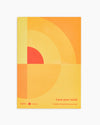Journal
Who Invented the Calendar: A Brief History Lesson
Published
July 08, 2024
Author
Suze Dowling

Have you ever wondered who decided January 1st would kick off the new year or why we have an extra day every four years? At Poketo, we're all about bringing joy and creativity to everyday life, and the calendar is no exception. It’s more than just a tool to keep track of birthdays or appointments — it’s a fascinating piece of history that has shaped cultures and civilizations.
So, who exactly invented the calendar, and how did we get to the one we use today? Let’s find out!
Why Are the Origins of the Calendar Important?
Before we dive into the who's, what's, and when's of calendars, you might be wondering, "Why should I even care about where calendars come from?" Well, here’s why tuning into this bit of history is cooler than you think.
- Shaping Societies: Believe it or not, calendars do more than just tell us the date — they’ve dictated farming schedules, influenced historical events, and even decided when we vote.
- Cultural Insight: Every calendar has a story that offers a sneak peek into the lives of the people who created it. Think of it as having a backstage pass to history’s biggest events.
- Global Diversity: Exploring different calendars — like the lunar Islamic calendar or China’s lunisolar version — shows us the amazing diversity in how societies structure time.
Who First Started Counting the Number of Days in a Year?
So, where did this all begin? The origins of our modern calendar can be traced back to ancient civilizations that needed effective systems for managing agricultural schedules and religious observances. The Egyptians, Babylonians, and Mayans were early pioneers in the art of timekeeping.
The Egyptian calendar, one of the first solar calendars, was introduced around 3000 BCE to predict the annual flooding of the Nile, which was key for agriculture at the time. This calendar featured 365 days, paving the way for most modern calendars.
Around 500 BCE, the Babylonians developed a lunisolar calendar that relied on the phases of the moon to mark the beginning of lunar months and added intercalary months to align with a solar year cycle.
How Did the Romans Evolve the Calendar?
Fast forward to the Roman era, where calendar reform became both a power play and a practical necessity. Under Julius Caesar’s rule, the Julian calendar was introduced in 45 BCE.
Advised by the Greek astronomer Sosigenes, Caesar reformed the ancient Roman calendar, which had become significantly out of sync with the seasons. He shifted from a lunar calendar to a solar counting system, defining the year as 365.25 days and introducing the concept of a leap day every four years to maintain alignment with the solar year.
As Rome’s influence spread throughout the Roman Empire, from the sunny coasts of Spain to the historic landscapes of Greece, so did this new calendar.
Why Did We Switch to the Gregorian Calendar?
By the 1500s, even the Julian calendar’s minor inaccuracies had caused significant issues, such as the date of Easter drifting away from the spring equinox. To address this, Pope Gregory XIII introduced the Gregorian calendar in 1582, which refined the leap year formula and omitted 10 days to realign the calendar with the solar year.
This reformation was quickly adopted by most Catholic countries in Europe, such as Portugal and France, who appreciated its improved accuracy for scheduling Christian observances. However, Protestant and Orthodox European countries initially resisted this new calendar, skeptical of its ties to the Catholic Church.
It wasn't until much later that countries like England and its territories, including the American colonies, adjusted to the Gregorian system. Even calendars can be subjects of international negotiation and gradual acceptance!
What's the Most Widely Used Calendar Across the Globe Today?
After centuries of refinement and updates, which calendar ended up organizing our global schedule? It’s the Gregorian calendar.
Here's why it's become the standard:
- Global Reach: Whether you're planning an international conference or syncing up holiday vacations, the Gregorian calendar keeps everyone aligned.
- Business as Usual: Imagine trying to run a multinational company without a shared calendar. Chaos, right? The Gregorian calendar keeps business booming smoothly, ensuring that meetings, deadlines, and financial closings are cohesive no matter the time zone.
- Cultural Harmony: Originally a Catholic innovation, the Gregorian calendar now plays a neutral role in our daily lives, helping us manage the mundane while respecting a tapestry of traditions. It’s the framework for our schedules, but it leaves room for the Lunar New Year, Diwali, and other cultural celebrations that follow different systems.
In essence, the Gregorian calendar makes connections easier across this hectic, hyper-connected world. It’s less about its historical roots and more about its present-day practicality, making sure everyone, everywhere, can stay in sync.
How Do Modern Calendars Fit Into Our Digital World?
With all this talk of ancient calendars and celestial calculations, you might wonder how they’re still relevant. Surprisingly, even in an era where we can check the date with a tap on a smartphone, traditional calendars have not only survived — they've thrived.
Digital Integration
Modern technology has seamlessly integrated traditional timekeeping concepts into digital formats. From Google Calendar to the apps on your phone that track lunar phases or remind you of religious holidays like Christmas, the principles established by the Julian and Gregorian calendars are still at play, just digitized.
Cultural Celebrations
Even as we embrace the convenience of digital alerts, physical calendars continue to hold a special place in our homes and hearts. They’re both practical tools and decorative elements that celebrate cultural diversity — from stunning Lunar New Year designs to artistically crafted Jewish calendars that mark the date of Easter and other significant observances.
Personal and Professional Planning
In our busy lives, calendars help us manage everything from project deadlines to family gatherings. Whether it's one of our beautifully designed planners or a simple desk calendar, these tools help us visualize our time in a way that digital screens sometimes can't match.
How Can You Master Your Calendar Like a Pro?
Now that we've navigated the history of calendars, how about some tips to get the most out of your own? Whether it's a sleek digital app or a charming physical planner, mastering your calendar can turn it from a simple date tracker into a powerhouse tool for managing your bustling life.
Here’s how to do it:
- Color Code to Conquer: Assign colors to different activities. It makes your week’s snapshot quick and easy to scan.
- Morning Mini-Checks: Spend a couple of minutes each morning to glance through your day's schedule. It keeps you prepped and on point.
- Creativity Blocks: Just like meetings, block out time specifically for brainstorming or just to doodle and dream.
- Weekly Wind-Down: At week's end, look back. What rocked? What flopped? Adjust as you go.
A calendar well-used can be a game-changer — turning it from a simple scheduler to a powerhouse of productivity and creativity. With a touch of planning and the right tools like our Headspace x Poketo Calendar, you can elevate your daily grind into something quite extraordinary.
The Bottom Line
So, who gets the credit for the calendar we hang on our walls or check on our phones? It’s not just one person or one civilization — it’s a series of innovations from the Babylonians to the Romans, refined by Pope Gregory XIII. They’ve mapped out our time from the first day of the year to the last, aligning each date with the Earth's journeys around the sun.
Here at Poketo, we encourage you to see each day as a canvas for creativity, a chance to color outside the lines of your schedule. Whether you're tracking lunar cycles or just counting down to your next big adventure, let our collection of planners and calendars inspire you to plan your time with joy and artistry.
Ready to take on the new year or start a new project? Dive into our bestsellers today and find the perfect companion for your creative lifestyle!
Sources:
Egyptian calendar | dating system | Britannica
Babylonian calendar | Definition & Facts | Britannica
Julian calendar | History & Difference from Gregorian Calendar | Britannica
6 Things You May Not Know About the Gregorian Calendar | HISTORY









